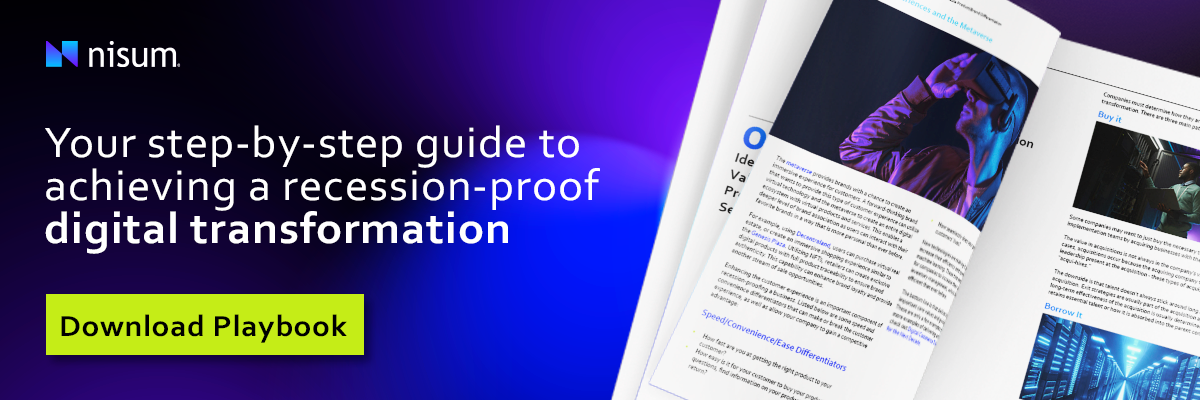.jpg?width=1200&name=New%20Size%20Page%2028%20Blog%20QA-%20The%20Importance%20and%20Advantages%20of%20a%20Data-Driven%20Culture%20(Unsplash).jpg) Photo Credit: Unsplash
Photo Credit: Unsplash
A data-driven culture is all about making decisions based on numbers crunched and insights generated using data. “The benefits of a data-driven culture is to examine and organize the data with the goal of better serving one organization’s customers and consumers,” says Gartner’s Vice President Analyst, Alan Duncan. It also bolsters and speeds up a business’ decision-making processes.
The Current Predicament That a Data-driven Culture Enforces
Most businesses are collecting data but data by itself does not hold any meaningful value. Leveraging collected data requires working with the stored data, but the problem-solving iterations must not end after a few use cases. Storing large amounts of data does not necessarily provide any benefits, and thus, it calls for moving away from big data towards solving business problems with a data-driven culture.

There are many advantages of having a data-driven culture that leads the business to success. Here are some of the most impactful ones.
-
Helps Make Efficient Decisions:
A data-driven culture encourages organizations to make decisions using reliable data. Data interpretation and critical thinking are necessary for any business. Still, a data-driven culture helps organizations gauge when to make a data-driven decision and when not to make one. It plays a major role in continuous improvement within the company and is achieved by constantly monitoring performance. It also helps improve business decisions based on insights and analytics. -
Supports Progress Tracking:
Data-driven culture helps organizations move away from using data for mere report generation and progress tracking. It supports in developing transparent reports to better understand the performance of a company, e,g., a 360-degree view of the company. -
Increases Coordination:
A data-driven culture can drive automation for mundane tasks and coordinate marketing, sales, and operational efforts. With better coordination between the various teams, it increases the consistency of the products/services/processes delivered and can be evaluated to create a better and more precise analysis of the future needs of the market and target audience.
A data-driven culture acts as a breeding ground for data democratization. There are no gatekeepers, and as such, everyone who can see the data can take ownership. Data democratization directly allows departments to use the historical customer data to understand customer needs without needing to talk to the customer.
The ability of an organization to identify potential opportunities based on numbers crunched from the data is the future and if leveraged properly, a recipe for success.
Data-driven Culture - A Key to Success
Data is now considered an integral part of any organization. The data that is collected is a source of information for improving business processes, improving decision making, predicting future trends and behavior, and it can be a tool in identifying new avenues to generate revenue.
A data-driven culture cannot blindly follow numbers crunched by data; it must promote collaboration between departments within the organization. Entities within the organization must use insights gained from data analytics as a platform for cooperation. Insights from data can not only help with problem-solving but can also connect the various departments of the organization.
From our experience, we have seen that the biggest issue that hinders organizations from setting up a data-driven culture is the mindset. For any organization, the setup of a data-driven culture presents a shift in philosophy and the decision-making process presents a daunting challenge.
How Nisum Can Help
At Nisum, our primary focus for 2020 and beyond is to instill a data-driven approach so that organizations can reshape their business landscape by leveraging the three pillars of Digital, Business Agility, and Insights and Analytics. A data-driven culture is enabled when organizations are able to enhance their digital capabilities, automate functionality to create a performance-oriented, productive environment. To learn more about our services, contact us.




